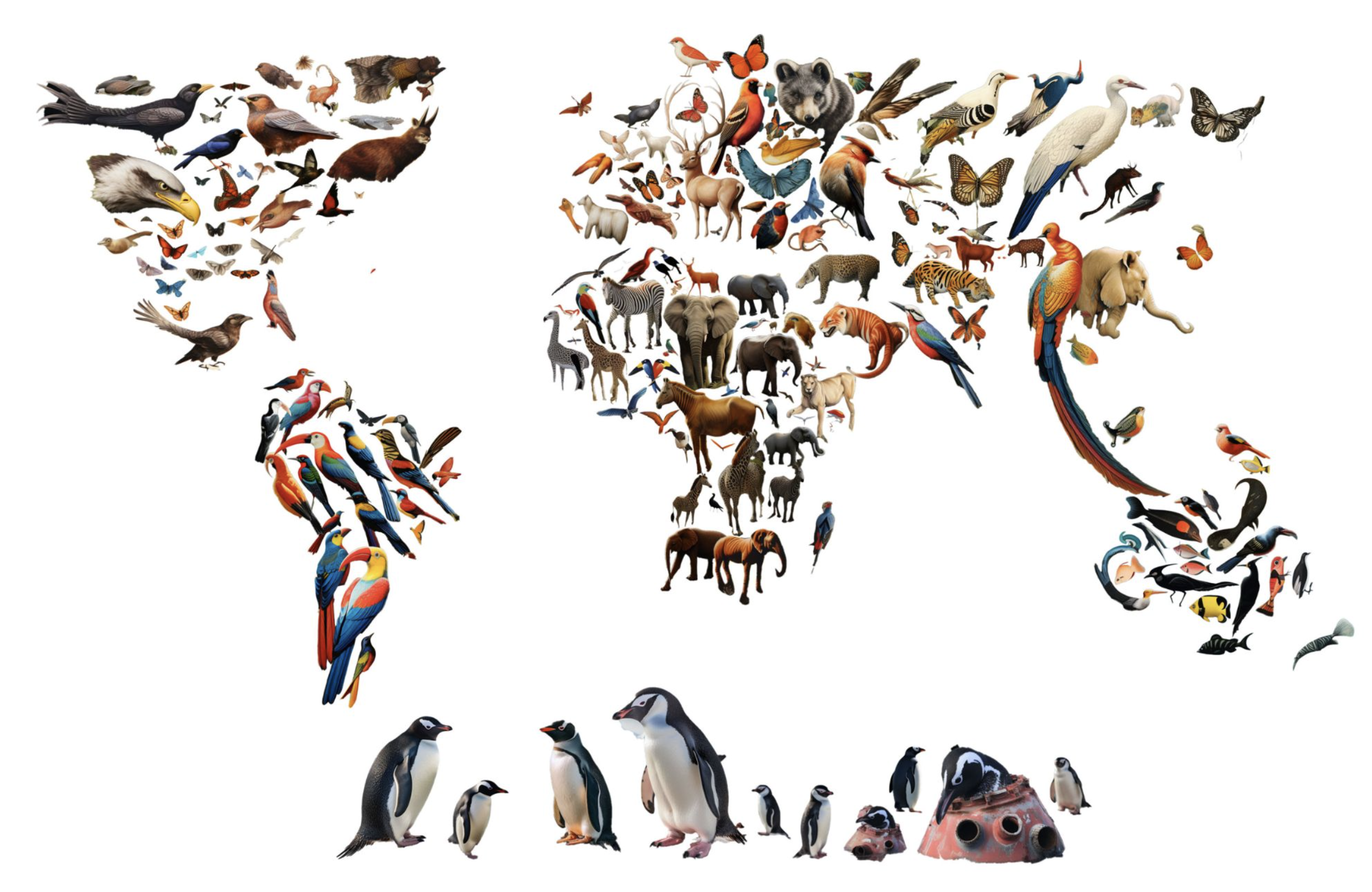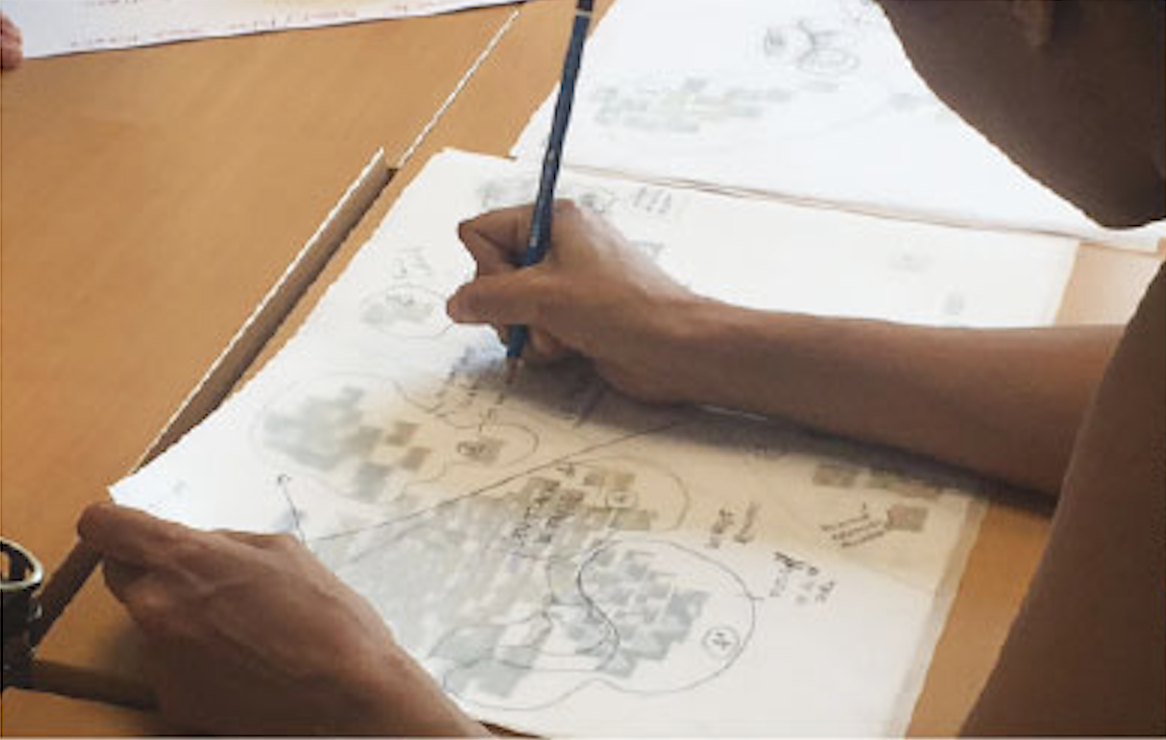You are here: Foswiki>Dmi Web>SummerSchool2024 (19 Dec 2024, GabrieleColombo)Edit Attach
Visual methods for digital research
Digital Methods Summer School and Data Sprint 2024


Digital Methods Summer School and Data Sprint 2024 1-12 July 2024
https://wiki.digitalmethods.net/Dmi/SummerSchool2024
In-person Opening day location:
University of Amsteram
Oudemannhuispoort
1012 CN Amsterdam
Room D0.09 Everyday location:
Media Studies
Turfdraagsterpad 9
1012 XT Amsterdam
the Netherlands
Instructions for uploading the final Summer School report(s)
Please make a project page, and link your project page to its title below. Here is an example of a project page: https://wiki.digitalmethods.net/Dmi/WinterSchool2019Normiefication. Practically speaking, to create a project page, make a wiki page such as https://wiki.digitalmethods.net/Dmi/SummerSchool2022TikTokMisinfo by typing such a URL (please note the URL syntax - /Dmi/SummerSchool2024 followed by shortened project name). Then 'create' the page (called a 'topic'). When you try to edit a page, you'll be asked to log in, at which point you can create an account. Here is the wiki project report template. Please link your project write-up by title above (by editing this page). If you are unable to create a wiki page or account, please send your final report (using the template) to the organizers.Project Write-ups
- 👁️ Uncovering visual narratives about human mobility on Telegram
- Open Source Intelligence on Budgets for Bits: An Analysis of EU Funding Allocation
- Affordances for expressing collective identities on X, Instagram and TikTok
- What Do Deepfakes Want? Using ‘Digital Forensic Gaze’ and Digital Methods to See (like) Deepfakes
- Ethnic minorities in Russia on Telegram: Clusters of concerns, 2022-2024
- It’s giving AI: Exploring and investigating Generative AI aesthetics
- 🇪🇺 Propaganda as a Service? Investigating the Moderation of AI-Generated Political Campaigning or the Lack Thereof
- ⛓️🪂 Digital Methods for Blockchain Research
- War, Memes, Art, Protest, and Porn: Jail(break)ing Synthetic Imaginaries under Open AI’s Content Policy Restrictions
- Audience Capture: Rethinking Influencer-Audience Relationships within the Alternative Influence Network
- 🗺️ Mapping Uncharted Waters: The Presence and Influence of Post-Truth Spaces in European Mainstream media 🗺️
- 🕵️Exploring political narratives around the 2024 European Elections
- Coding, prompting, “deprompting”: testing AI generated images against the “broken telephone” game, based on images from the Ad Library Political Observatory
- Prompting for Biodiversity: Visual research with AI
- Coordinated inauthentic behaviour on Facebook
- ⚽ (Gauge, Observe, Articulate, Listen): Using Multi-Modal AI to Measure the Entertainment Value of a Football Match
- 📯 postal.media: A meta-archive of postal transmission
- SynthViz: Enhancing Interpretative Summarization and Visualization Techniques
- Creating an Ad Library Political Observatory
Important Links
- Welcome package (includes the Schedule)
- Schedule
- Join the Mattermost channel! (Alternative to Slack)
- Project descriptions (join a project!)
- Tutorials
- Template for final poster
- Template for project reports. And DMI wiki project write-up template
- Face Book
Digital Methods Summer School and Data Sprint: Call for Participation
The Digital Methods Initiative (DMI), Amsterdam, is holding its annual Summer School on 'Visual methods: From platform aesthetics and data visualisation to AI hermeneutics'. The format is that of a (social media and web) data sprint, with tutorials as well as hands-on work for telling stories with data. There is also a programme of keynote speakers. It is intended for advanced Master's students, PhD candidates and motivated scholars who would like to work on (and complete) a digital methods project in an intensive workshop setting. For a preview of what the event is like, you can view short video clips from previous editions of the School. From platform aesthetics and data visualisation to AI hermeneutics The application of visual methods to online culture has swung between the hermeneutical tradition of interpretation to the formalisms of visualisation and, most recently, to the question of how to interpret generated images. In the interpretative tradition, platforms have visual styles that are carried forward when one posts. There may be a dominant aesthetic that then is extolled in the comments and scoring systems. For example, the term 'Instagramism' captures a 'look' or mise-en-scène associated with the platform, and how well one performs it is reflected in comment space, together with the metrics. Platforms may have preferred communicative styles and means of expression such as memes and emoji. The style is also an affordance aesthetic, where one's knowledge of platform vernacular is displayed in a post that maintains a thread or in a well chosen reaction that closes it. These posts, comments, reactions, replies, threads, and conversation stoppers are also datapoints which depending on their combination would be visualised in specific manners. Learning to visualise (and when to visualise) are central to visual methods for the study of online data and images. Collections of images may be visualised or they may be datified and then visualised. Most recently, the study of image generation by AI platforms has multiple points of departure. Computational hermeneutics, or the analysis of the histories and styles extended in computational outputs, focuses on how the visual is the product of certain algorithms, models and/or architectures. For example, in AI hermeneutics there are outputs that one may discern through the model of generation such as diffusion or 'style transfer'. The Summer School takes up questions of how to study current visual platform aesthetics and affordances, online data visualisation, image collections, datafied images as well as generative AI image outputs. The first week has as its focus visual methods for visual data and interpreting AI; among the specific focal points are large (and small) image collections. The second week highlights visual platform affordances, taking up the study of different platform types, e.g., the post-and-comment platform as well as the tweet-and-reply space with threads.Applications: Key Dates
There are rolling admissions and applications are now being accepted. To apply please send a letter of motivation, your CV, a headshot photo, 100-word bio as well as a copy of your passport (details page only) to summerschool [at] digitalmethods.net. Notifications of acceptance are sent 1-2 weeks after application. Final deadline for applications is 31 May 2024. The full program and schedule of the Summer School are available by 14 June 2024.Tuition Fees, Completion Certificates & Accommodations
The fee for the Digital Methods Summer School 2024 is EUR 795, and upon completion all participants receive transcripts and certificates (worth 6 ECTS). To complete the Summer School successfully all participants must co-present the one final presentation (poster session) and co-author one final project report, evidenced by the presentation slides or poster as well as the final report(s) themselves. Final reports should appear on this wiki (handy template) and contain a link to the final presentation slides or poster. They are due on 12 August, or four weeks after the end of the Summer School. There are no other attendance or completion certificates issued other than the transcripts.Payment information is sent along with the acceptance notification. Students at the University of Amsterdam do not pay fees. Members of Dutch Research Schools and alumni of the University of Amsterdam pay half fees. There are no other scholarships or discounts.
The Summer School is self-catered. The venue is in the center of Amsterdam with abundant coffee houses and lunch places.
We have available accommodations at this hotel: The Social Hub Amsterdam
Jan van Galenstraat 335
1061 AZ Amsterdam
(Arrival: 30 June 2024; Departure: 13 July 2024)
https://www.thesocialhub.co/amsterdam-west/
Use discount code: DIGITALMETHODS15 (It only works for Arrival: 30 June 2024; Departure: 13 July 2024. For different dates, contact the hotel directly.)
We also have accommodations available at
The Volkshotel
Wibautstraat 150
1091 GR Amsterdam
https://www.volkshotel.nl/en/
Use discount code: Digimeth To avoid disappointment, please contact them as early as possible. Please bring your laptop computer, your European plug as well as the HDMI/USB-C adaptor for connecting to the projector.
About DMI
The Digital Methods Summer School is part of the Digital Methods Initiative (DMI), Amsterdam, dedicated to developing techniques for Internet-related research and to the study of the natively digital. The Digital Methods Initiative also holds the annual Digital Methods Winter Schools, which are intensive and full-time undertakings in January. There is a practical textbook, Doing Digital Methods (Sage, 2024 - 2nd edition). The Digital Methods book (MIT Press, 2015) provides the methodological outlook that frames and informs the work of the DMI. It is accompanied by a companion volume about mapping social and political issues with digital methods: Issue Mapping for an Ageing Europe (Amsterdam University Press, 2015), which is also freely available on the web as an open access monograph. Further information and resources about digital methods can be found at digitalmethods.net - including links to example projects, publications, tools, an introductory "founding narrative" about the Digital Methods Initiative as well as short bios of the affiliated researchers. The coordinators of the Digital Methods Initiative are Prof. Sabine Niederer (Amsterdam University of Applied Sciences) and Dr. Esther Weltevrede (New Media & Digital Culture, University of Amsterdam), and the director is Richard Rogers, Professor of New Media & Digital Culture, University of Amsterdam.About Digital Methods as a Concept
Digital methods is a term coined as a counterpoint to virtual methods, which typically digitize existing methods and port them onto the Web. Digital methods, contrariwise, seek to learn from the methods built into the dominant devices online, and repurpose them for social and cultural research. That is, the challenge is to study both the info-web as well as the social web with the tools that organize them. There is a general protocol to digital methods. At the outset stock is taken of the natively digital objects that are available (links, tags, threads, etc.) and how devices such as search engines make use of them. Can the device techniques be repurposed, for example by remixing the digital objects they take as inputs? Once findings are made with online data, where to ground them? Is the baseline still the offline, or are findings to be grounded in more online data? See R. Rogers (2009), The End of the Virtual: Digital Methods. Amsterdam: Amsterdam University Press.Social
We are using the #DMI24 hashtag as the backchannel for communication (to use a throwback term for Twitter usage). Some pictures from a past Winter School. Here is the Facebook Group from one year, and from a Summer School. Here are pictures from a variety of DMI Summer and Winter School Flickr streams.EU Project
This Summer School is part of the EU Project, SoMe4Dem. It also has participants from the EU projects, SoBigData++ and Vera.ai.| I | Attachment | Action | Size | Date | Who | Comment |
|---|---|---|---|---|---|---|
| |
2.5 (2).jpg | manage | 783 K | 15 Apr 2024 - 17:59 | SabineNiedererDMI | |
| |
Screenshot 2024-04-15 at 16.49.27.png | manage | 789 K | 15 Apr 2024 - 14:56 | SabineNiedererDMI | |
| |
Screenshot 2024-04-15 at 16.52.02.png | manage | 3 MB | 15 Apr 2024 - 17:59 | SabineNiedererDMI | |
| |
Screenshot 2024-04-15 at 16.53.11.png | manage | 1016 K | 15 Apr 2024 - 17:59 | SabineNiedererDMI |
Edit | Attach | Print version | History: r35 < r34 < r33 < r32 | Backlinks | View wiki text | Edit wiki text | More topic actions
Topic revision: r35 - 19 Dec 2024, GabrieleColombo
 Copyright © by the contributing authors. All material on this collaboration platform is the property of the contributing authors.
Copyright © by the contributing authors. All material on this collaboration platform is the property of the contributing authors. Ideas, requests, problems regarding Foswiki? Send feedback


